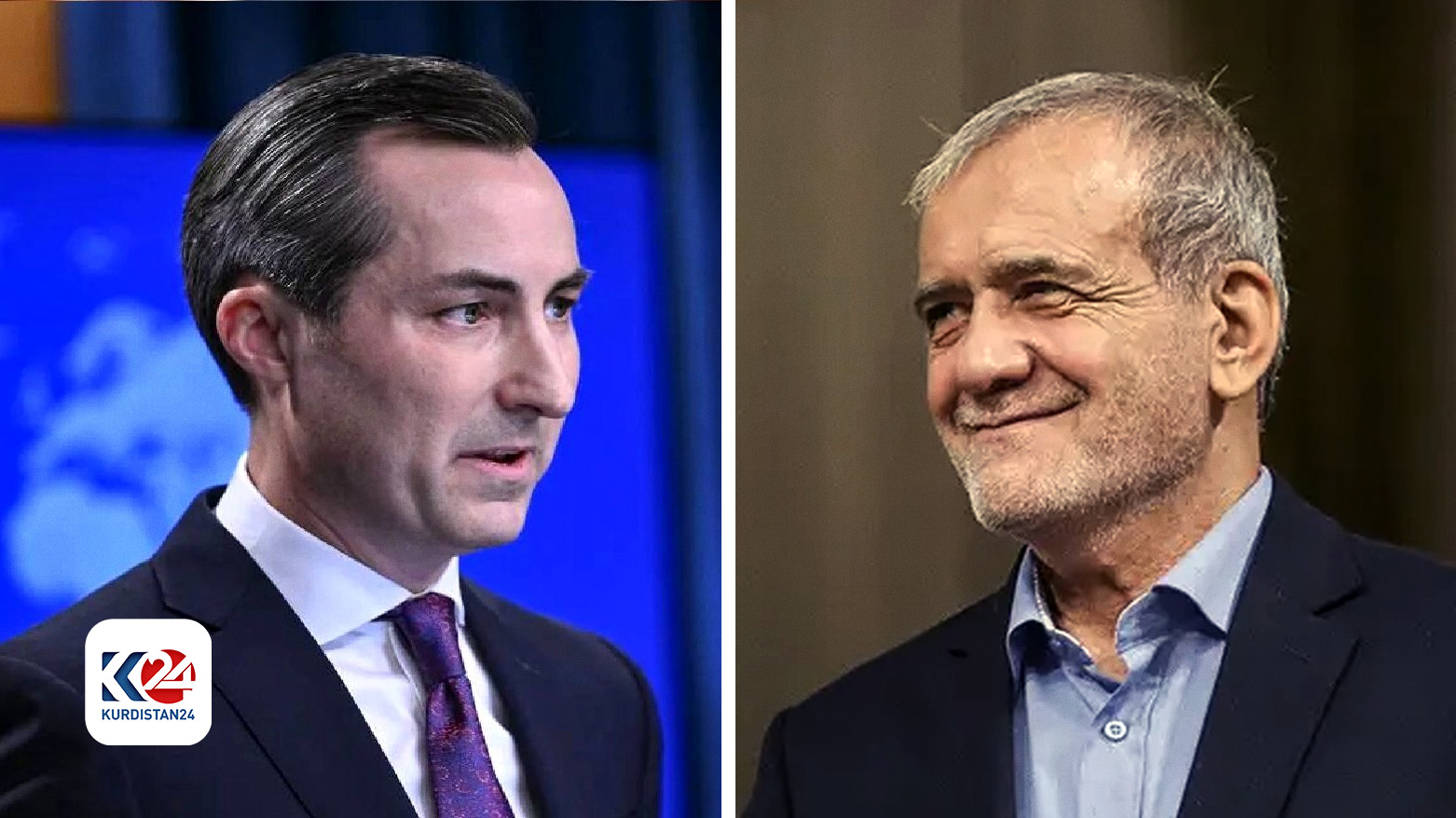US calls on new Iranian President to Protect the Rights of Iranian Women
“One of the actions he could take would be to stop the crackdown on women and women’s rights inside Iran’s borders.”

WASHINGTON DC, United States (Kurdistan 24) – The U.S. has called on Iran’s new president, Masoud Pezeshkian, to protect the rights of Iranian women.
State Department Spokesperson, Matthew Miller, made the statement on the second anniversary of the death of Mahsa Amini, the young Kurdish woman detained by Tehran’s so-called “morality police” for not properly wearing her headscarf and who then died while in their custody.
Her death sparked months of protests under the banner, “Women, Life, Freedom.” Pezeshkian is a relative liberal within Iran’s political context, and the protests may well have contributed to his victory in the election this summer that followed the death of former president Ebrahim Raisi in a helicopter crash.
At a press briefing on Friday, a journalist addressed Miller. She stated that on the anniversary of her death “and the start of the Woman, Life, Freedom movement, the UN fact-finding mission has issued its latest report on the situation of human rights in Iran.”
“It says the suppression of women’s and girls’ rights has intensified,” the journalist continued, “and I quote, ‘states must continue to place the situation of women and girls in the Islamic Republic of Iran high on the international agenda.’”
So, she asked Miller, “I was wondering what the Biden administration is doing in this regard.”
Tribute to Mahsa Amini—and Appeal to Masoud Pezeshkian
Miller’s response began with a tribute to Amini. “Mahsa Amini’s story did not end with her death,” he said. “She inspired a historic movement that has impacted Iran and influenced people across the globe who are advocating for gender equality, respect for human rights, and particularly for human rights inside Iran.”
Miller endorsed the conclusion of the UN report as “absolutely right,” while he noted that we “continue to see a crackdown on women and women’s rights in Iran.”
Miller then directed remarks at Pezeshkian, stating, “The new president of Iran has at various times signaled that he wants to change” Tehran’s approach and “reach out to the West and have a different relationship.”
“There are obviously a number of actions he could take in that regard when it comes to Iran’s destabilizing activities outside of its own borders,” Miller continued.
But Iran’s president does not set the country’s national security policy. That is, above all, the purview of the Supreme Leader, Ayatollah Ali Khamenei, and Miller is quite aware of that.
So Miller added a more plausible suggestion. “One of the actions [Pezeshkian] could take,” Miller said, “would be to stop the crackdown on women and women’s rights inside Iran’s borders.”
Masoud Pezeshkian’s Background: Kurd + Azeri
Pezeshkian is not Persian, the dominant ethnic group in Iran. Rather, he comes from two minorities: his mother was Kurdish, while his father was Azeri, and he speaks both Kurdish and Azeri.
His first trip abroad as president was to neighboring Iraq, first Baghdad and then Erbil. He just completed that trip, which actually marked an historical first.
It was the first time that the leader of a foreign country visited the Kurdistan Region and spoke Kurdish!
Read More: Iranian President Pezeshkian: "We Have Come to Erbil to Resolve Outstanding Issues"
This background has likely contributed to Pezeshkian’s relative liberalism. And there are probably other contributing factors as well.
Pezeshkian has a medical degree. Before entering politics, he was a heart surgeon. His wife was also a doctor—a gynecologist, although she died in 1993 in a car accident, along with his youngest son.
He has two older sons and a daughter, who is a professional woman. She has a master’s degree in chemistry.
So it is not impossible that Pezeshkian will respond positively to Miller’s suggestion that he help ensure that the human rights of Iranian women are respected, even as that remains to be seen.